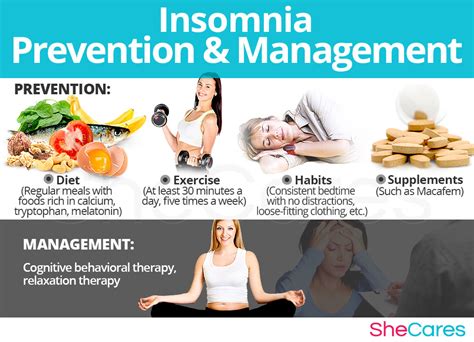Insomnia Management - Effective Solutions for Quality Sleep
Insomnia Management FAQ
How is insomnia treated?
Treatment for insomnia depends on how long a person has been experiencing sleep issues and any specific factors that are contributing to their sleep loss. If insomnia is associated with another condition, such as sleep apnea or depression, treatment of the other condition often improves sleep.
Is insomnia a sleep disorder?
Insomnia is a sleep disorder characterized by difficulty falling asleep, staying asleep, or both, even if you have ample time and a bedroom environment conducive to restful sleep. An insomnia diagnosis requires these sleep troubles to also cause daytime impairments, such as sleepiness or difficulty concentrating.
What does insomnia mean?
What is insomnia? Insomnia means poor sleep. About one third of adults do not get as much sleep as they would like. Poor sleep can mean: Not being able to get off to sleep. Waking up too early. Waking for long periods in the night. Not feeling refreshed after a night's sleep.
What is an insomnia diagnosis?
An insomnia diagnosis requires these sleep troubles to also cause daytime impairments, such as sleepiness or difficulty concentrating. Up to two-thirds of people occasionally experience insomnia symptoms.
How do you manage insomnia in primary care?
Alcohol intake is a common maladaptive self-treatment strategy in insomnia which can contribute to poor sleep-maintenance. Exercise. Exercise should be avoided within 4 hours of bedtime but is beneficial earlier in the day. Covers the management of people with short-term insomnia in primary care.
What are the diagnostic criteria for insomnia?
Diagnostic criteria for insomnia includes difficulty initiating or maintaining sleep, waking up earlier than desired, and resistance going to bed at a reasonable hour. These symptoms must occur for at least 3 months despite adequate opportunities for sleep on a nightly basis.
Insomnia Management References
If you want to know more about Insomnia Management, consider exploring links below:
What Is Insomnia Management
- https://www.nhs.uk/conditions/insomnia/
- https://cks.nice.org.uk/topics/insomnia/management/
- https://www.mayoclinic.org/diseases-conditions/insomnia/diagnosis-treatment/drc-20355173
- https://www.nhsinform.scot/illnesses-and-conditions/mental-health/insomnia
- https://www.sleepfoundation.org/insomnia/treatment
- https://www.ncbi.nlm.nih.gov/pmc/articles/PMC6732697/
- https://patient.info/mental-health/insomnia-poor-sleep
Explore Related Topics
Sleep Deprivation and Diabetes Risk: What's the Connection?
Examine the correlation between lack of sleep and the development of diabetes.
Can Better Sleep Improve Blood Sugar Control?
Explore how sleep quality affects glucose levels and strategies to optimize both.
